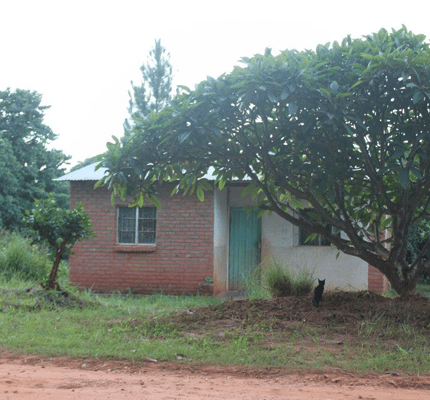
A Malawi Peace Corps Sojourn Reveals Connections Between Humans and the Environment
In a new essay published in NCA’s Text and Performance Quarterly, Melissa M. Parks revisits a 26-month sojourn with the Peace Corps in Malawi. In recounting these personal experiences, Parks examines the process of ecocultural adjustment, which refers to understanding the relationship between one’s body and the new environment. Parks’ essay breaks down the “human-nature binary,” which sees humans as separate from the environment, rather than intimately connected to it.
Ecoculture Shock on Arrival and Adjustment
Culture shock and cultural adjustment are related terms that describe the emotional changes that occur when one arrives in a new place. Shock is often associated with trauma or distressing experiences, while adjustment is an umbrella term that captures both positive and negative responses associated with sojourning. Parks describes their initial adjustment as a battle between “clean” and “dirty” spaces—indoors and out: “In these early months of my stay, I conceived a strict division between two separate spaces: my space, a clean space, strictly reserved for my singular body, and the outside space, where the dirt belonged.” Parks’ conception of space also speaks to a belief in the boundary between human spaces and the environment. To maintain the “human” space, Parks destroyed spider webs and sprayed insecticide to discourage bugs from making their home in the building. In journal entries, Parks describes this experience as “’never-ending battles… for my space.” This experience represents the stress and coping associated with culture shock, but in an ecological sense; Parks was attempting to cope with the transition to a new place by maintaining the state of the home in an effort to have some control over the situation.
Parks soon adjusted to the new environment and came to think of the insects, rodents, geckos, and other animal residents as part of an “interspecies family.” Parks also recognized illnesses, infections, and parasites as part of a larger ecosystem in which the human body was a participant. In a journal entry, Parks wrote, “I’m in this home that now also has its grip on me like those before it, its bird claws and snake fangs holding me in place, fighting to keep me, fighting to own me, to uplift and destroy me, to take me over the way African vines, creatures, and weather take over everything. Malawi would make me its own, hungrily devouring me so I can add to the red clay, add to the cycle, leave my carbon to the continent.”
Communication was a critical component of ecocultural adjustment. Parks argues that this communication took multiple forms, including conversations with geckos and other animals who made Parks’ home their home, as well as subconscious communication processes. For example, Parks’ meals in Malawi were made from local foods, such as tea, rice, bananas, tomatoes, and sweet potatoes. Parks argues that “consuming in this highly localized manner was a form of communication between my body and the more-than-human world… As I ate what was grown or raised in this particular place, so those foods became the very tissue of my body.” Through these conscious and subconscious communication processes, Parks developed a relationship with the local environment, but this relationship was disrupted when Parks left Malawi.
Ecoculture Shock when Returning
Unlike the extensive preparation for culture shock prior to leaving for Malawi, Parks received little preparation for culture shock upon return and little support from the Peace Corps, beyond three free counseling sessions. As the anticipated date for leaving drew closer, Parks’ journal entries describe stress and apprehension: “I started experiencing terrifying panic attacks and severe insomnia. My body ached; the day I left my house for good, I couldn’t turn my head because my neck was so painfully knotted with tension. I was prone to teary break-downs. I was sick all the time. I was sleepless and snappy.” Yet, Parks found it hard to share these feelings because of fears that friends and family would not understand the trepidation associated with returning “home.” The two years in Malawi had changed Parks and made the prospect of reconnecting with friends and family seem impossible.
Upon returning to the United States, Parks took a job in Los Angeles, California, but what was once “normal” no longer felt like it: “But what was normal? Feeling comfortable constantly wearing shoes so I could walk on the hot concrete pathways instead of feeling the earth beneath my feet? … Was it normal to have no idea where my food was coming from, or what was in it? Was it normal to exercise on machines in a closed room where no one spoke to one another? Was it normal to spend most of the day sitting still? Was it normal to be constantly surrounded by people and yet disconnected from each and every one of them?” Parks’ culture shock was not just cultural, but ecocultural. In the United States, connections with the environment were muted by concrete, air conditioning, and a Western emphasis on keeping nature separate from humans.
Conclusion
Parks argues that ecocultural adjustment shows that the divide between humans and nature is unsustainable and must be questioned. Although years have passed since Parks’ experience in Malawi, it remains a formative experience that prompts questions about the boundaries placed between humans and the environment in Western culture. Parks notes that ecocultural adjustment can help scholars and others understand individual experiences with adjustment and could be useful in other contexts, such as understanding immigrant, migrant, and refugee experiences.


